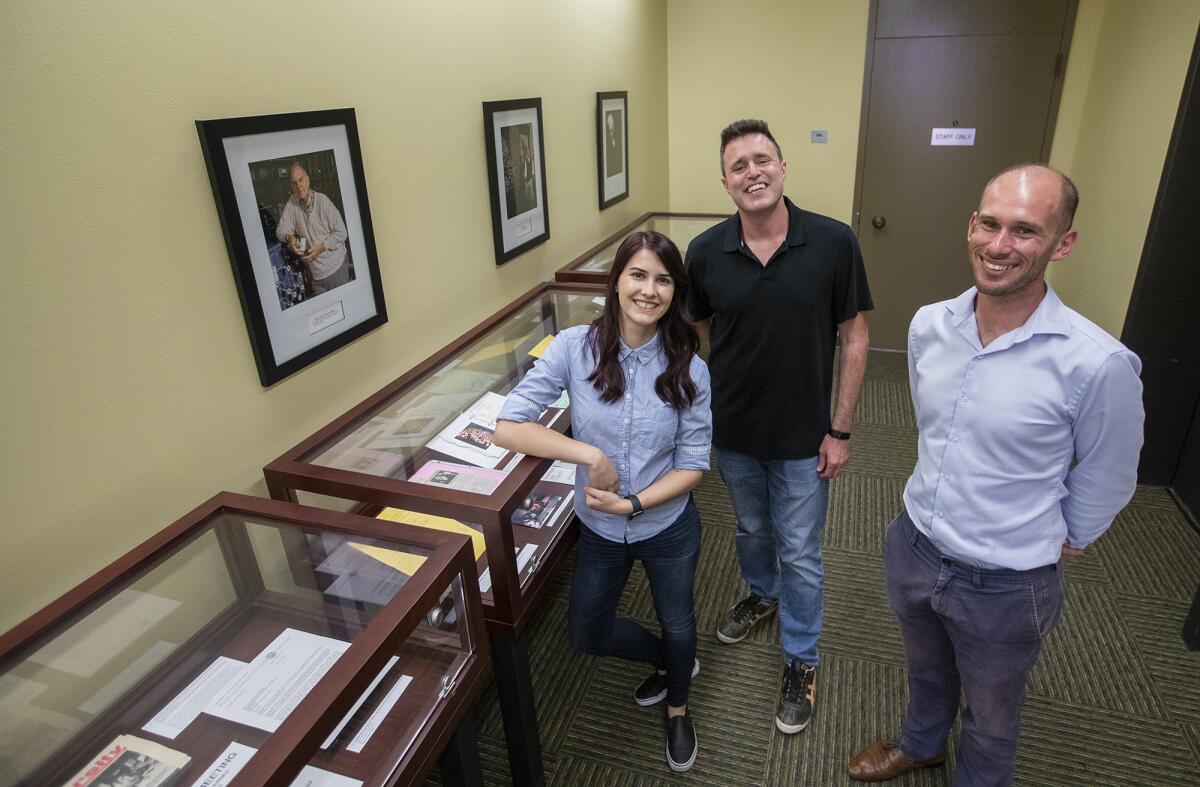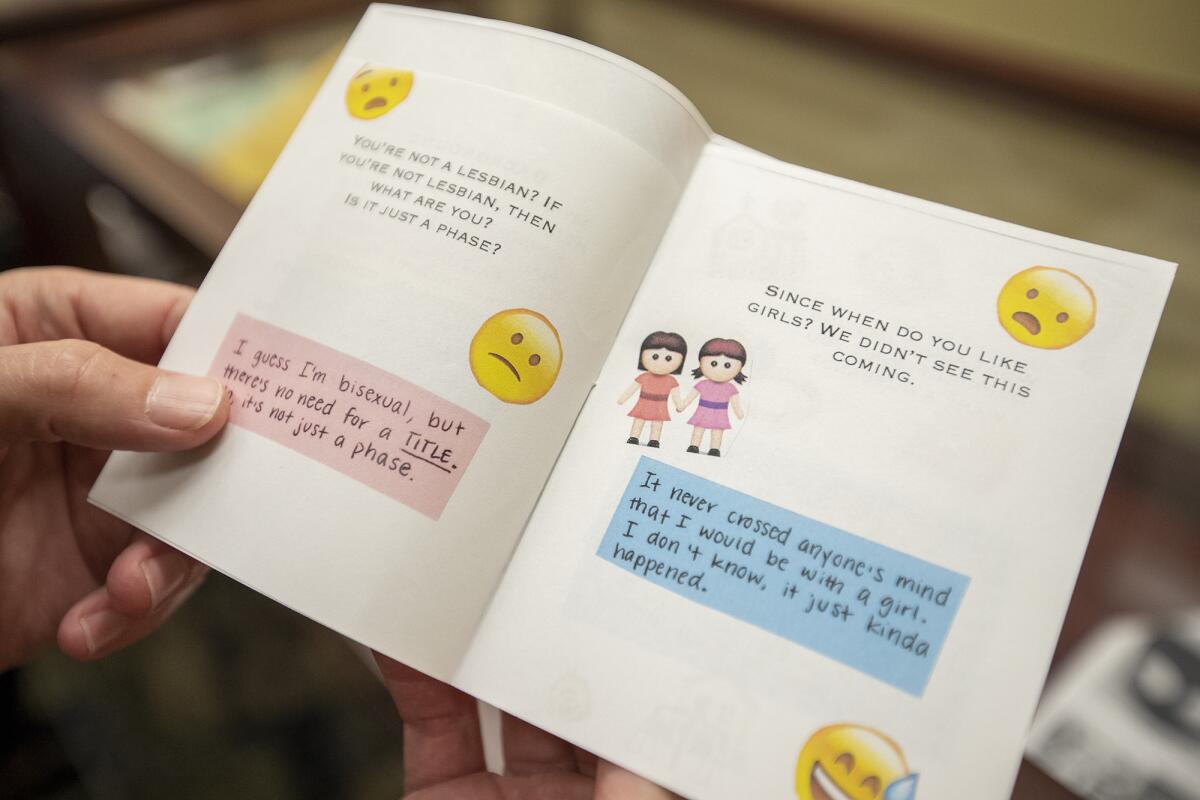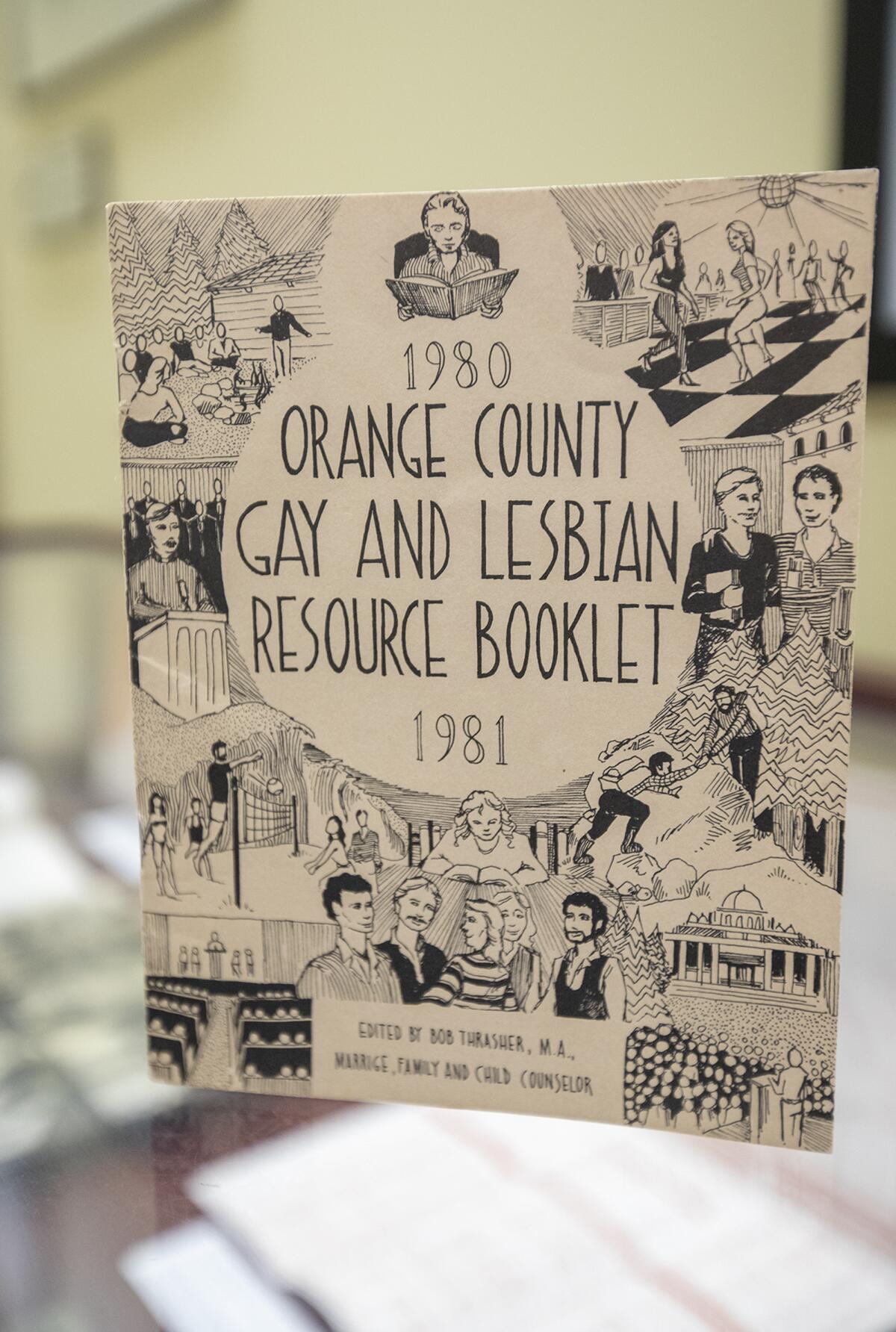‘Queering the Orange’ exhibit about county’s LGBTQ history opens at UCI’s Langson Library

- Share via
A new exhibit on Orange County’s history with the LGBTQ community opened this week in the Langson Library at UC Irvine.
“Queering the Orange,” curated by the UCI Libraries Diversity Team, focuses on the history of the county’s lesbian, gay, bisexual, transgender and queer residents as they found each other before the advent of the internet, fought countywide and on campus for their rights and found the voices to tell their own stories.
The exhibit will be displayed on the fifth floor of the Langson Library through October.
Materials for the exhibit were donated by the OC Historical LGBT Timeline Project, private collections and the LGBT Center OC, which is based in Santa Ana.
Included in the four locked glass display cases are items dating from last century to as recently as last year: a collection of photos from the early 1970s of weekend beach volleyball games at Laguna Beach’s famously gay West Street Beach, queer literature published in Capistrano Beach and “zines” — small, self-published works that are typically photocopied for wider distribution — about sexual and gender identity.

Also on display are clippings related to protests from New University, UCI’s student newspaper — including one about a proposed on-campus screening of the gay adult film “Seven in a Barn” in March 1972.
Following community backlash both on and off campus, Irvine police seized the film and the event, as well as a scheduled panel discussion on human sexuality, were canceled.
There also is a clipping regarding the 1990 Shantytown Protests, where students built a cluster of cardboard shacks in front of the administrative building to protest a statement from former UCI Chancellor Jack Peltason that the campus would follow California law and not provide family housing to unmarried couples — a move that effectively barred LGBTQ couples, specifically those in same-sex relationships who could not legally get married at the time, from accessing those units.
Other artifacts of recent history include a cookbook by the Orange County Gay Men’s Chorus and a 2016 zine called “Closets and Shadows” that looks at the intersection of identity for queer undocumented immigrants.
UCI librarians Kelsey Brown and Joshua Hutchinson, who helped curate the exhibit, said they tried to include a variety of artifacts in the exhibit’s four thematic displays.
The first focuses on the history of the county at large, while the others focus on UCI — in part because the university opened in 1965, just four years before the Stonewall riots in New York City that are credited with helping launch the modern LGBTQ rights movement.

“Having materials here that reflect community, especially LGBTQ and other communities, [it] reinforces that there is a whole history to the county and we should really think about that whole history — not just the part that includes the ranchos and the oranges and the agriculture,” said Krystal Tribbett, curator for Orange County Regional History at UCI.
Tribbett said she felt it was important to have the collection because of student interest in social justice issues and communities outside of their own, as well as discussions about identity.
“There’s this perception that if it’s preserved, then that’s the stuff that matters to folks,” Tribbett said. “So, yes, [‘Queering the Orange’] does matter to us ... The fact it’s being preserved and taken care of and we are encouraging people to come and research also shows that we think it’s pretty important.”
All the latest on Orange County from Orange County.
Get our free TimesOC newsletter.
You may occasionally receive promotional content from the Daily Pilot.




